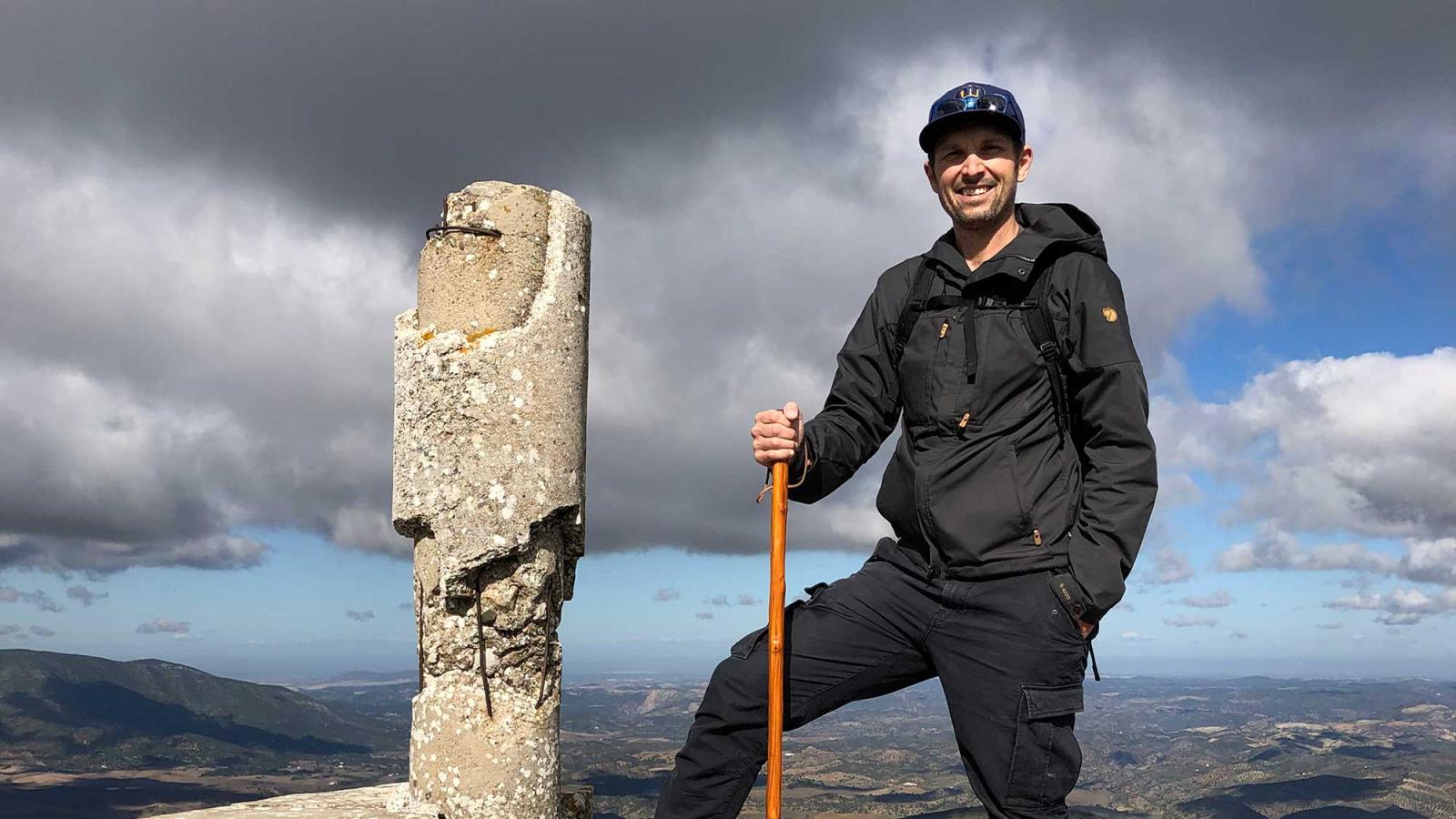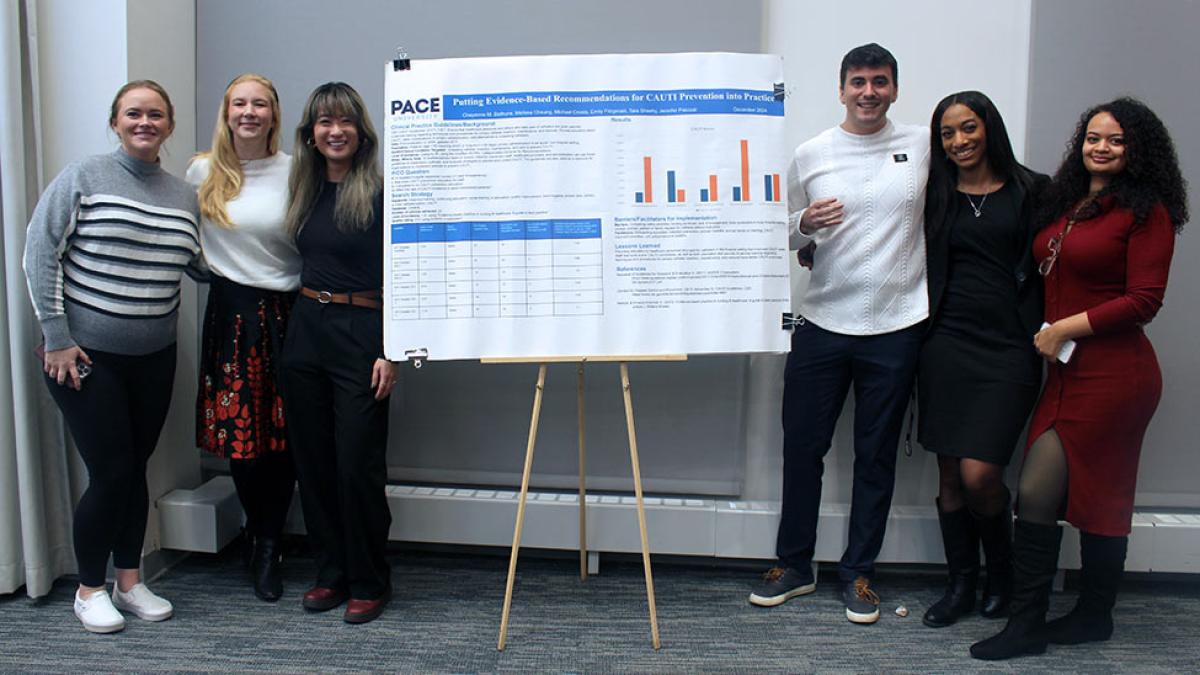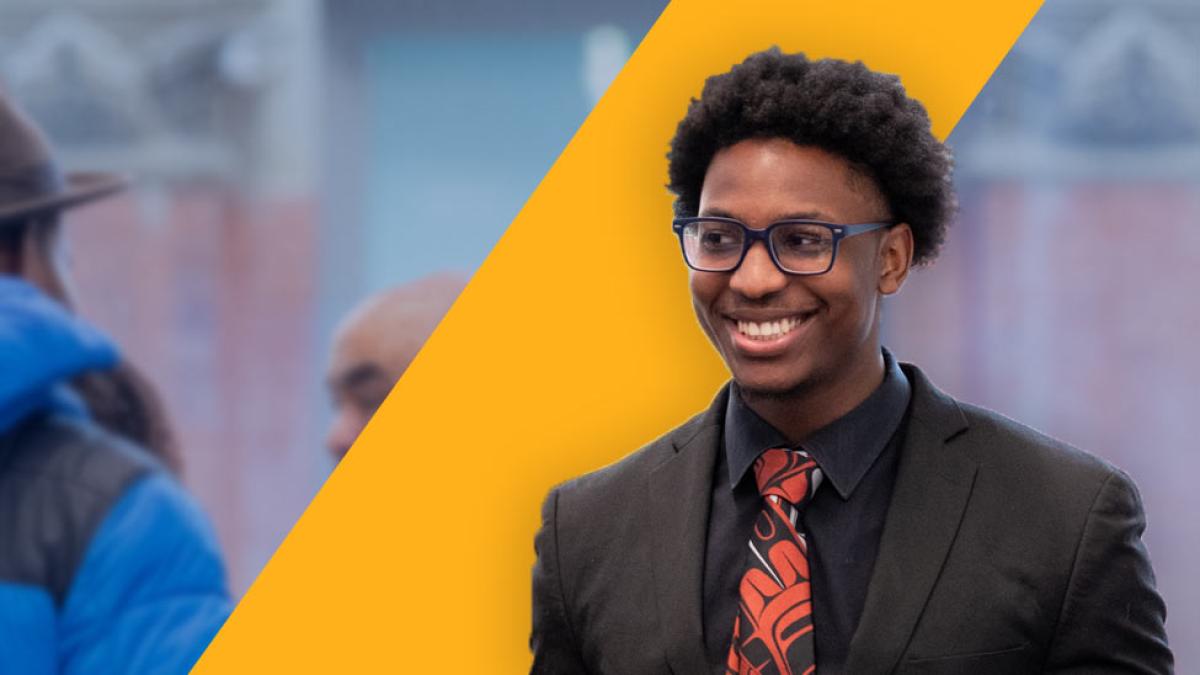From volunteering during the height of the COVID-19 pandemic, to finishing her degree, Nurse Practitioner Emily Fitzgerald’s journey to graduation embodies a #PaceGoGetter.
Faculty Focus: Jason J. Czarnezki

Jason J. Czarnezki is the Gilbert and Sarah Kerlin Distinguished Professor of Environmental Law and the Associate Dean of Environmental Law Programs and Strategic Initiatives. Professor Czarnezki joined Haub Law in 2013, and teaches Natural Resources Law, Sustainable Business and the Environment, Property, and the Environmental Law Seminar: Current Challenges. Since he joined Haub Law, the environmental law program has been ranked by U.S. News & World Report as number one in environmental law for the last two years in a row and for three times in the last four years. A generational environmentalist, learn about Professor Czarnezki’s recent research interests, his family full of outdoor enthusiasts, and more in this Q+A.
Let’s start with discussing your recent work – both in and out of academia.
Recently, I’ve been working on researching eco-labeling, sustainable procurement, and the evolution of sustainable business law. I’m looking at challenges that individual consumers face when buying products. There are many issues in this category: consumers are overwhelmed by labels, there is a lot of greenwashing, consumers do not understand what product labels mean, whether or not the burden should be on consumers, and how to make labels more accessible.
I have also been looking at retailers, wholesalers, and public institutions (schools, government agencies, etc.) in the context of sustainable procurement. How do we measure non-price characteristics such as environmental footprints (for example, carbon, land use, and water), social welfare and economic welfare? For example, EU law allows public purchasers to employ life cycle costing – they don’t have to buy the good with cheapest price.
Outside of academia, I work with cleanteach and sustaintech startups that are harnessing sustainability data to improve and green the supply chain and their products.
Additionally, we have over 300 students involved in our environmental law program in some way. Part of my role in administration is to organize and create intellectual projects for the program (Garrison and Kerlin Lecture, NELMCC). We always ask what can we improve and how can we innovate? Through this culture, we have created the Food Law Initiative, the Environmental Law & Policy Hack, and the new Sustainable Business Law Hub.
Can you tell me a bit about the new Sustainable Business Law Hub?
More and more law firms are adding ESG groups to work with clients on disclosures, climate risks, and drafting environmental policy statements for their companies. The Hub will serve as an incubator space, student-training program, research endeavor, and think tank devoted to addressing global sustainability challenges through policy and research projects, relationships with the business community, and capacity building in private environmental governance. Students will be able to work closely with faculty experts and receive practical training and experience. We hope that more students will pursue the JD/MBA and participate in ESG corporate externships. Students involved in the Hub will jump into their first job after graduating understanding how they can help their employers foster sustainable business practices.
More and more law firms are adding ESG groups to work with clients on disclosures, climate risks, and drafting environmental policy statements for their companies. The Hub will serve as an incubator space, student-training program, research endeavor, and think tank devoted to addressing global sustainability challenges through policy and research projects, relationships with the business community, and capacity building in private environmental governance.
How did you become interested in environmental law? And what keeps you interested in environmental law?
It’s the family business! My grandfather graduated from the first graduating class of what is now the College of Natural Resources in Stevens Point, Wisconsin. My relatives are park rangers, foresters, and lumberjacks. I grew up in a family that went camping, hunting, and fishing. My grandfather worked as a supervisor in the Milwaukee County Parks System, pioneering at-the-time novel ideas like mulching grass back into the lawn rather than bagging it in plastic. My father served in the Wisconsin State Legislature, sponsoring significant environmental legislation. I decided to go to law school to work in environmental law.
Two things keep me interested in environmental law. First, I enjoy my administrative role as vehicle to create opportunities for students that lead to careers of impact and meaning in the field of environmental law. For example, we have increased funding for the DC externship, created the Haub Scholar program, created more student scholarships—all things that can be transformational student experiences. We have also diversified our curriculum, which now includes environmental justice, climate law, and food law, as well as add significant diversity to our environmental law faculty and staff.
Second, I enjoy nature and value conservation, and exploring how law shapes our environmental values. What brings me the most joy, though, is teaching my students and facilitating their exploration of nature. I love taking my students on “natural resources tours” of NYC and can’t wait for my natural resources law field course in Grand Teton National Park to return.
Do you have any advice for students interested in environmental law?
My advice to an environmental student isn’t different than to a non-environmental student. Work hard. Look a few years past graduation. You’re not going to graduate from law school and be EPA Administrator. Many graduate have to do other things first. They might do real estate law or big law for a few years before switching to environmental law. Two alumni come to mind. One does legal sustainability for a major company. The other is General Counsel for a large environmental non-profit. Both were in non-enviro jobs initially. While you’re in school, think about what skills you need to have to do that job down the line. Look at the resumes of people with your dream jobs and see what they did. Finally, do not rob from your future self, as my spouse likes to say. There’s so much you don’t know. You might be interested in a job you didn’t think you would like. Be open-minded. All law contains environmental issues.
As we reflect on Earth Day, what advice can you give students to make a difference in saving our planet and promoting conservation and sustainability?
I wrote a whole book about this called "Everyday Environmentalism.” There are so many actions, big and small, that each of us can take. “The low-hanging fruit include, to name a few: try to eat organic and local, eat less meat and shift away from red meat, live close to where you work and play, see if your household can get along with only one car (and try to make it a fuel efficient one), walk and take public transit, compost as much as possible, stop engine idling, buy compact fluorescent light bulbs, adjust down the thermostat, decrease household water temperature, keep proper tire pressure, and work to educate yourself about the ecological and economic costs of your actions in the long term. Engine idling, for example, accounts for a substantial portion of carbon emissions and fuel consumption, measured at 1.6% of all U.S. carbon dioxide emissions and 10.6 billion gallons of fuel per year. Attempts to address idling through public education campaigns have proven successful in Canada, and similar success in the United States would prevent 7 to 26 million tons of carbon dioxide emissions each year and reduce fuel consumption by 660 million to 2.3 billion gallons each year. Recall that generating public awareness is a tool always to consider when seeking change in individual decision-making.“
Jumping to your non-academic interests – what are some of them?
I like playing music, but haven’t played at all during the pandemic because I want to be outside. I enjoy swimming in lakes, kayaking, cooking, exploring the NFT market, and splitting wood.


